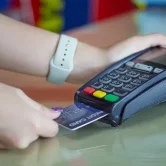- Your cart is empty Browse Shop
Is it time to ditch cash payments during the coronavirus?

Not a day passes at the moment where further developments materialise in the ongoing spread of the coronavirus virus (COVID-19) and as the numbers rise across the UK, it is forcing many business owners to rethink strategies that most consumers touch every day…. money. You can’t escape a news bulletin without mention of the deadly virus and the continued impact it is having on everyday life.
Will contactless payments surge as coronavirus grips the UK?
Customers are turning to contactless card payments in hope of avoiding the coronavirus COVID-19. Traditional cash payments are being ditched as customers look to avoid touching loose change or notes on the advice of health experts. A statement published by the World Health Organization commented that Pay & Wave contactless card payments could ‘reduce the risk of transmission’. In the same report it also advised individuals to wash their hands after handling money (particularly loose change and bank notes) and for individuals to avoid touching their face.
Accepting contactless card payments during the coronavirus outbreak
Using contactless cards will deliver peace of mind to many customers when they look to pay for goods and items, as it invariably means no one will need to handle their card limiting and protecting others from the potential spread of the virus. It’s not a particularly pleasant thought contemplating how much bacteria cash is exposed to – whereas a debit or credit card is incredibly easy to keep clean and if you are unsure you can use a simple antibacterial wipe.
Can the coronavirus live on cash?
Sterling notes and loose change can often come into contact with hundreds of people whilst in circulation and as a result may come into various dirt, debris and bugs as they are readily passed about. As medical experts confirm the deadly virus is able to live on hard surfaces for at least 72 hours, it may have the ability to be present on notes or loose change.
Most will agree that cash is becoming less convenient and contactless payments has been shown to improve customer satisfaction whilst reducing queuing times.
Cash payments being banned during coronavirus pandemic
Changes are being seen right across the Globe. In Paris last week it was reported that the Louvre museum had banned cash payments on site following on from the rise in corona pandemic. The reasons behind the drastic decision was partly based on an effort to appease staff returning to their work setting. It was even reported that China had started sterilizing cash amid fears that coins and cash were carrying the coronavirus. Ultraviolet light or high temperatures have been used to sterilise notes before it is then sealed and held in storage for a fortnight before entering circulation. News today also saw the first Premier League game cancelled in England after fears the Arsenal team may have come into contact.
Mobile and contactless payments have grown considerably in the last 7-8 years and there are a plethora of options for customers to pay with now and these include Samsung Pay, Apple Pay and Google Pay.
Most people are aware that the virus spreads through respiratory droplets which means when an infected person coughs or sneezes it spreads the infection further. We encourage customers to follow the World Health Organization for updates, news and basic protective measures. It goes without saying but we encourage all customers to regularly and thoroughly clean their hands with an alcohol-based hand rub or wash them with soap and hot water.




